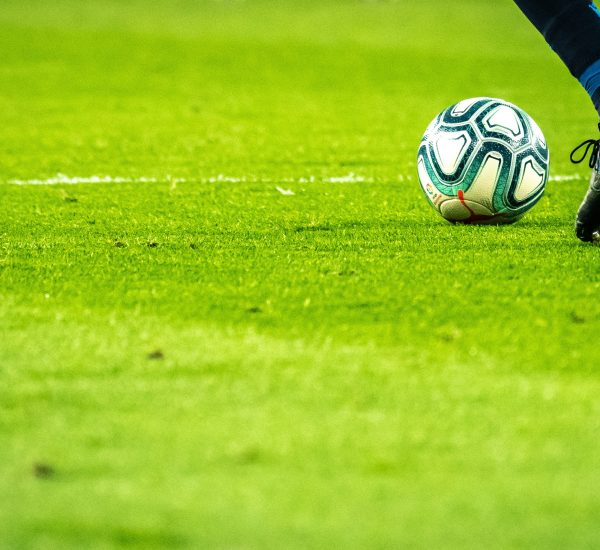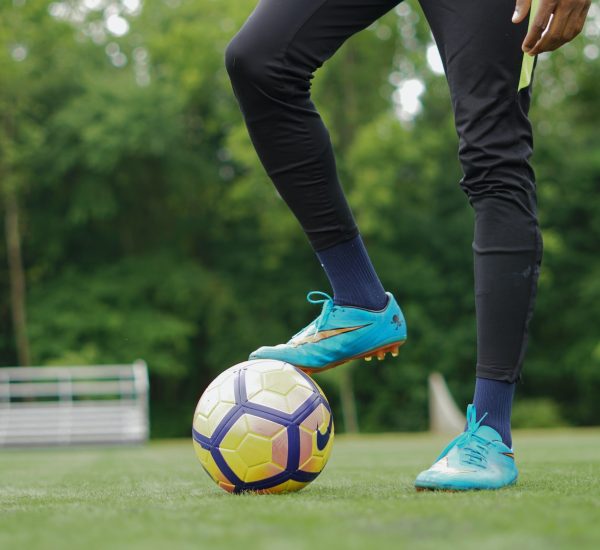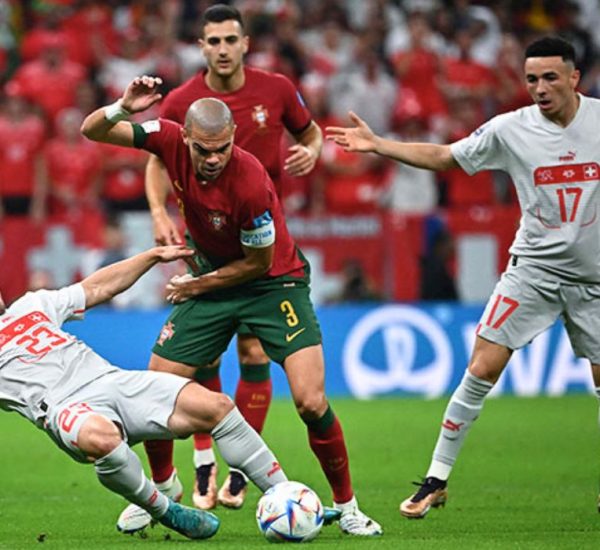Essential Qualities of a Soccer Defender: The art of defending in soccer isn’t as straightforward as merely blocking opponents from scoring. It requires a finely tuned blend of physical attributes, tactical understanding, and a mentality forged in the crucible of high-stakes competition. Here are 30 qualities that make an exceptional soccer defender.
- Positional Sense: A great defender maintains a strategic position relative to their teammates, opponents, and the ball, anticipating the play and intercepting passes.
- Speed and Agility: Defenders must match the pace of swift attackers, maneuver quickly in different directions, and recover fast from slips or mistimed tackles.
- Strength: Physical strength is essential to hold off opponents, win aerial duels, and make impactful tackles.
- Stamina: Maintaining a high level of performance throughout the game is crucial for a defender.
- Tackling Skills: Defenders must be adept at both standing and slide tackles without giving away fouls.
- Aerial Ability: Winning headers, whether for clearances, during set-pieces, or in open play, is a crucial skill for defenders.
- Bravery: Defenders must be courageous to engage in physical duels, block shots, and make last-ditch tackles.
- Leadership: A great defender organizes the backline, communicates effectively, and motivates teammates.
- Mental Toughness: Defending can be a pressure cooker, requiring strong mental resilience to perform consistently.
- Understanding of Offside Rule: The ability to play the offside trap is an invaluable tool in a defender’s repertoire.
- Passing Ability: Modern defenders are required to initiate attacks from the back with accurate short and long passes.
- Ball Control: Good first touch and control under pressure are fundamental to retaining possession and avoiding unnecessary turnovers.
- Vision: Recognizing and reacting to an unfolding play in defense and attack is crucial.
- Anticipation: A top defender’s hallmark is reading the game and anticipating the opponent’s next move.
- Discipline: Avoiding unnecessary fouls and cards and adhering to tactical instructions are fundamental traits.
- Interceptions: Intercepting the ball denies the opponent scoring opportunities and can launch counterattacks.
- Composure: Staying calm under pressure helps maintain performance and reduces the risk of mistakes.
- Decision-Making: Knowing when to tackle, when to hold a position, and when to pass or clear the ball is critical to defending.
- Communication: Effective communication helps coordinate the defense and alert teammates to potential threats.
- Tactical Intelligence: Understanding team tactics and opponents’ tactics aids in effective defending.
- Blocking Shots: Defenders must be willing to place themselves in the line of fire to prevent shots on goal.
New Inclusions:
- Versatility: The ability to play in different defensive positions adds extra value to a defender, as they can adapt to various formations and strategies.
- Marking Skills: Keeping track of specific opponents and restricting their influence in the game is vital for a defender.
- Balance: A defender requires excellent balance to resist challenges, especially when turning quickly or going into a tackle.
- Technique: Having good technique helps in tackling, intercepting, clearing the ball, and in retaining possession.
- Professionalism: Demonstrating dedication to training, maintaining physical condition, and following the team’s tactical instructions are marks of professionalism in a defender.
- Creativity: Though not traditionally associated with defenders, creativity can be valuable in launching attacks and playing out from the back.
- Set-Piece Defending: Special abilities in defending set pieces – corners, free kicks, and penalties – can often make a difference in close games.
- One-on-One Defending: The ability to thwart an opponent one-on-one is crucial, especially against fast, skillful attackers.
- Recovery: The ability to recover quickly after a mistake, not just physically but mentally, is vital for a defender.
Understanding these attributes provides a comprehensive framework for what it takes to be a great soccer defender. Of course, mastering all these traits is a tall order, but each represents a path toward improvement. Whether you are a young aspirant or a seasoned professional, focusing on these attributes can help take your defensive game to new heights.



